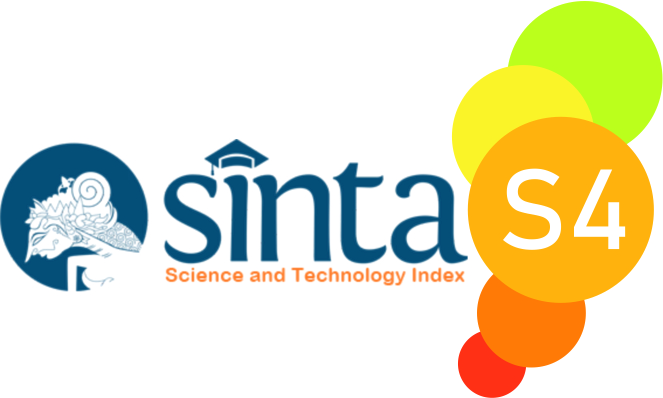Exploring Academic Integrity in Online Assessment
Perspectives from EFL Teachers
Abstract
Four years have passed since the pandemic situation forced us to adapt in order to continue our education. This adaptation extends to the way we administer learning evaluations through the online assessment. Certain schools and universities continue to utilize these adaptations in education to this day. Furthermore, the online assessment raises several issues, one of which is the academic integrity. Thus, this paper explores the issue of academic integrity in online assessment from the perspective of EFL teachers. This study explores the teachers' views of academic integrity in online assessments, their experiences with academic integrity violations, and approaches to administering academic integrity. This study employed a survey method, using an online questionnaire distributed to EFL teachers across Indonesia and involving forty-two participants. The data collected from the questionnaire was analyzed using descriptive statistics to interpret the findings and draw conclusions. The results show that most teachers acknowledge the principle and significance of academic integrity, but they admit to having difficulties administering and monitoring academic integrity in their class. Furthermore, not all teachers are able to effectively manage their experiences with academic integrity violations. Therefore, further study considering this issue is suggested.
References
Bhardwaj P. (2019). Types of sampling in research. Journal of the Practice of Cardiovascular Sciences, 5(3), 157. DOI: 10.4103/jpcs.jpcs_62_19
Bretag, T., Mahmud, S. (2015). A Conceptual Framework for Implementing Exemplary Academic Integrity Policy in Australian Higher Education. Handbook of Academic Integrity, 1–14. DOI: 10.1007/978-981-287-079-7_24-1
Bretag, T. (2016). Defining Academic Integrity: International Perspectives Introduction. Handbook of Academic Integrity, 3–5. DOI: 10.1007/978-981-287-098-8_76
Djamdjuri, D.S., Kamilah, A. (2020). WhatsApp Media In Online Learning During Covid-19 Pandemic. English Journal. 14(2). 69-74.
Fishman, T. (2015). Academic Integrity as an Educational Concept, Concern and Movement in US Institutions of Higher Learning. Handbook of Academic Integrity, 1–12. DOI: 10.1007/978-981-287-079-7_1-1
Gamage, K. A. A., Silva, E. K., & Gunawardhana, N. (2020). Online Delivery and Assessment during COVID-19: Safeguarding Academic Integrity. Education Sciences, 10(11), 301. DOI:10.3390/educsci10110301.
Gynnild, V., Gotschalk, P. (2008). Promoting academic integrity at a Midwestern University: Critical review and current challenges. International Journal for Educational Integrity, 4(2). DOI: 10.21913/ijei.v4i2.413.
Halil, N., I. (2020). The Effectiveness of Using Edmodo as an Online Learning Platform in Covid-19. Jurnal Penelitian dan Pengkajian Ilmu Pendidikan: e-Saintika, 4(3), 284-298.DOI:10.36312/e-saintika.v4i3.316.
Holden, O., Kuhlmeier, V. A., & Norris, M (2020). Academic Integrity in Online Testing: A Research Review. DOI: 10.31234/osf.io/rjk7g.
Jain, G. (2020). Emerging Trends of Education During & Post COVID 19: A New Challenge. Solid State Technology, 63(1), 796-806.
Lazar, J., & Preece, J. (1999). Designing and implementing Web-based surveys. Journal of Computer Information Systems, 39(4), 63-67.
McGee, P. (2013). Supporting AcademicHonesty in Online Courses. The Journal of Educators Online, 10(1). DOI:10.9743/jeo.2013.1.6
Mindarta, E., Harly, M., Sumarli, S., & Paryono, P. (2020). The Quality of Asynchronous Online Learning on Edmodo-Based Engine Electricity System Course During Covid-19 Pandemic. Erudio Journal of Educational Innovation, 7(1), 64-72. DOI:10.18551/erudio.7-1.6.
Okmawati, M. (2020). The Use of Google Classroom during Pandemic. Journal of English Language Teaching, 9(2). DOI:10.24036/jelt.v9i2.109293.
Paullet, Karen & Chawdhry, Adnan & Douglas, David & Pinchot, Jamie. (2015). Assessing Faculty Perceptions and Techniques to Combat Academic Dishonesty in Online Courses. Paullet et al. (2015)
Peterson, J. (2019). An Analysis of Academic Dishonesty in Online Classes. Mid-Western educational researcher, 31, 24-36.
Piascik, P., Brazeau, G. A. (2010). Promoting a Culture of Academic Integrity. American Journal of Pharmaceutical Education, 74(6), 113. DOI: 10.5688/aj7406113.
Pinsonneault, A., & Kraemer, K. L. (1993). Survey research methodology in management information systems: An assessment. Journal of Management Information Systems, 10, 75-105.
Pratama, H., Azman, M. N. A., Kassymova, G. K., & Duisenbayeva, S. S. (2020). The Trend in Using Online Meeting Applications for Learning During the Period of Pandemic COVID-19: A Literature Review. Journal of Innovation in Educational and Cultural Research, 1(2), 58-68.
Reedy, A., Pfitzner, D., Rook, L., & Ellis, L. (2021). Responding to the COVID-19 emergency: student and academic staff perceptions of academic integrity in the transition to online exams at three Australian universities. International Journal for Educational Integrity, 17(1). DOI: 10.1007/s40979-021-00075-9.
Rodchua, S. (2017). Effective Tools and Strategies to Promote Academic Integrity in e Learning. International Journal of e-Education, e-Business, e-Management and e-Learning, 7(3), 168–179. DOI: 10.17706/ijeeee.2017.7.3.168-179
Salant, P., & Dillman, D. A. (1994). How to conduct your own survey. New York: John Wiley and Sons.
Spaulding, M. (2009). Perceptions of Academic Honesty in Online vs. Face-to-Face Classrooms. Journal of Interactive Online Learning, 8, 183-198.
Sumaharani, N. K., Artini, L., & Padmadewi, N. (2023). The Implementation of Using Formative Assessment on Student Speaking Skills During Online Learning. Journey: Journal of English Language and Pedagogy, 6(2), 448-457. https://doi.org/10.33503/journey.v6i2.3201
Wijaya, T., Zhou, Y., Purnama, A., & Hermita, N. (2020). Indonesian students’ learning attitude towards online learning during the coronavirus pandemic. Psychology, Evaluation, and Technology in Educational Research, 3(1), 17-25. DOI:10.33292/petier.v3i1.56.
Copyright (c) 2024 Yola Savitri, Pupung Purnawarman

This work is licensed under a Creative Commons Attribution-ShareAlike 4.0 International License.

Journey: Journal of English Language and Pedagogy by http://ejurnal.budiutomomalang.ac.id/index.php/journey/index is licensed under a Creative Commons Attribution-ShareAlike 4.0 International License.






